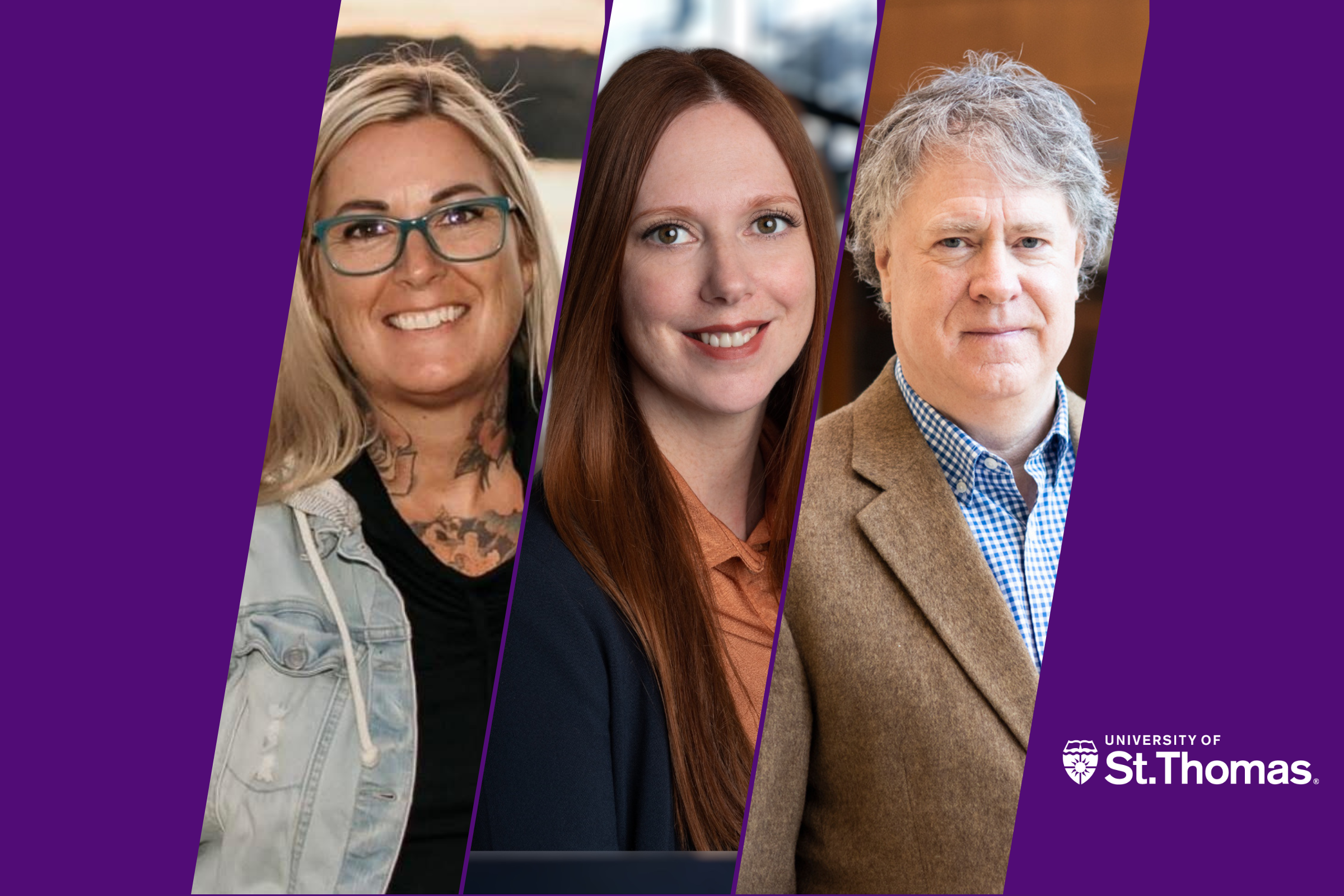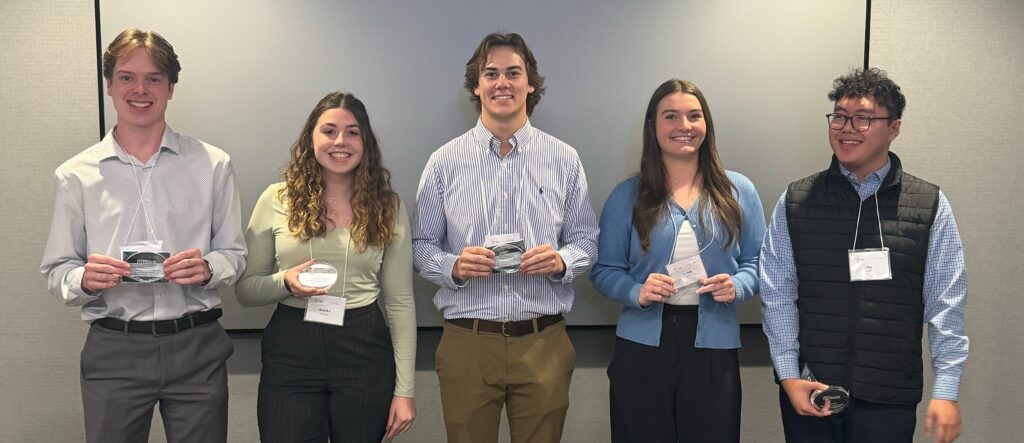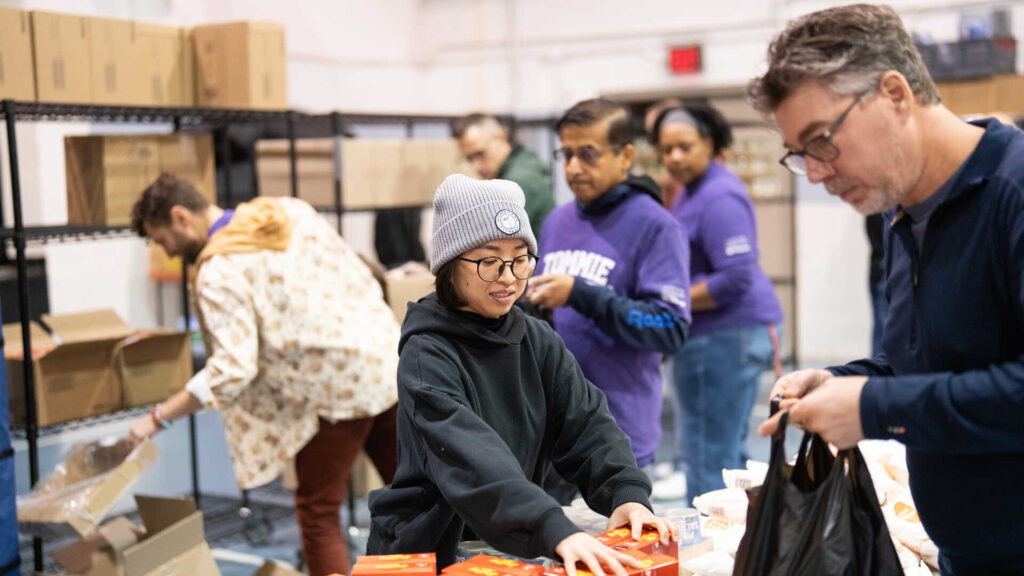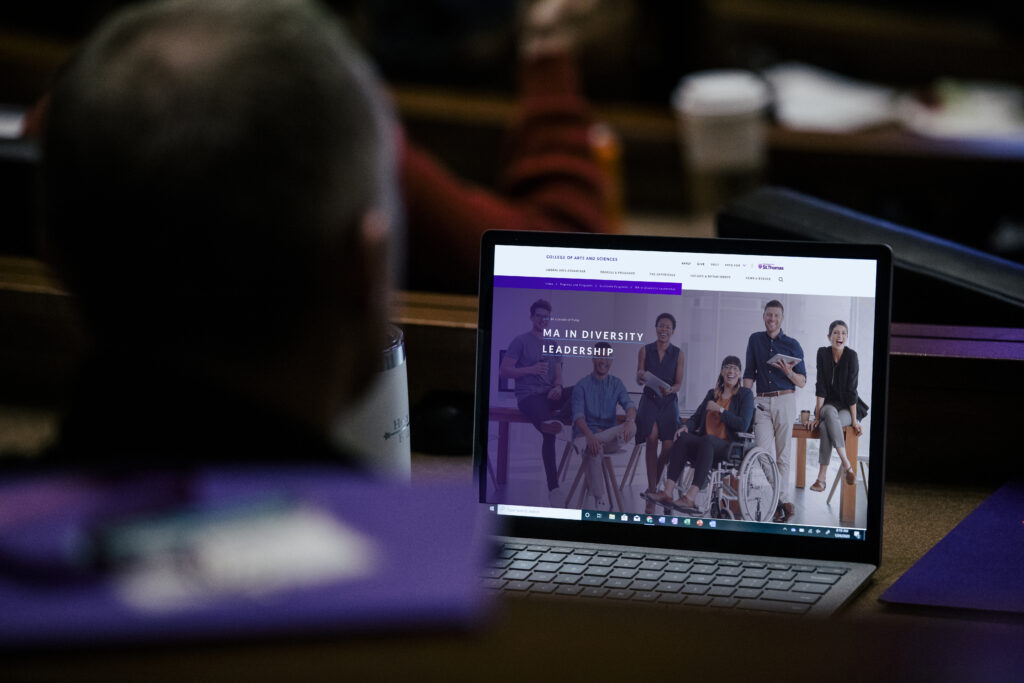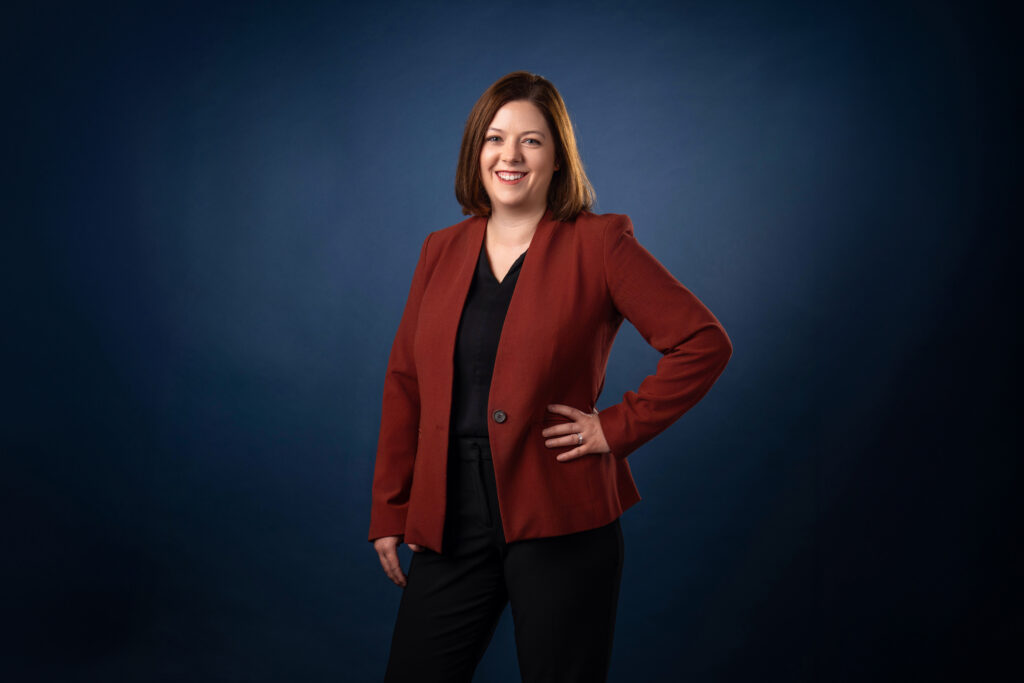President Joe Biden announced on Dec. 12 that he had granted pardons to 39 people convicted of nonviolent crimes. Among them was Sarah Carlson, who worked with the University of St. Thomas School of Law Federal Commutations Clinic to submit her pardon application.
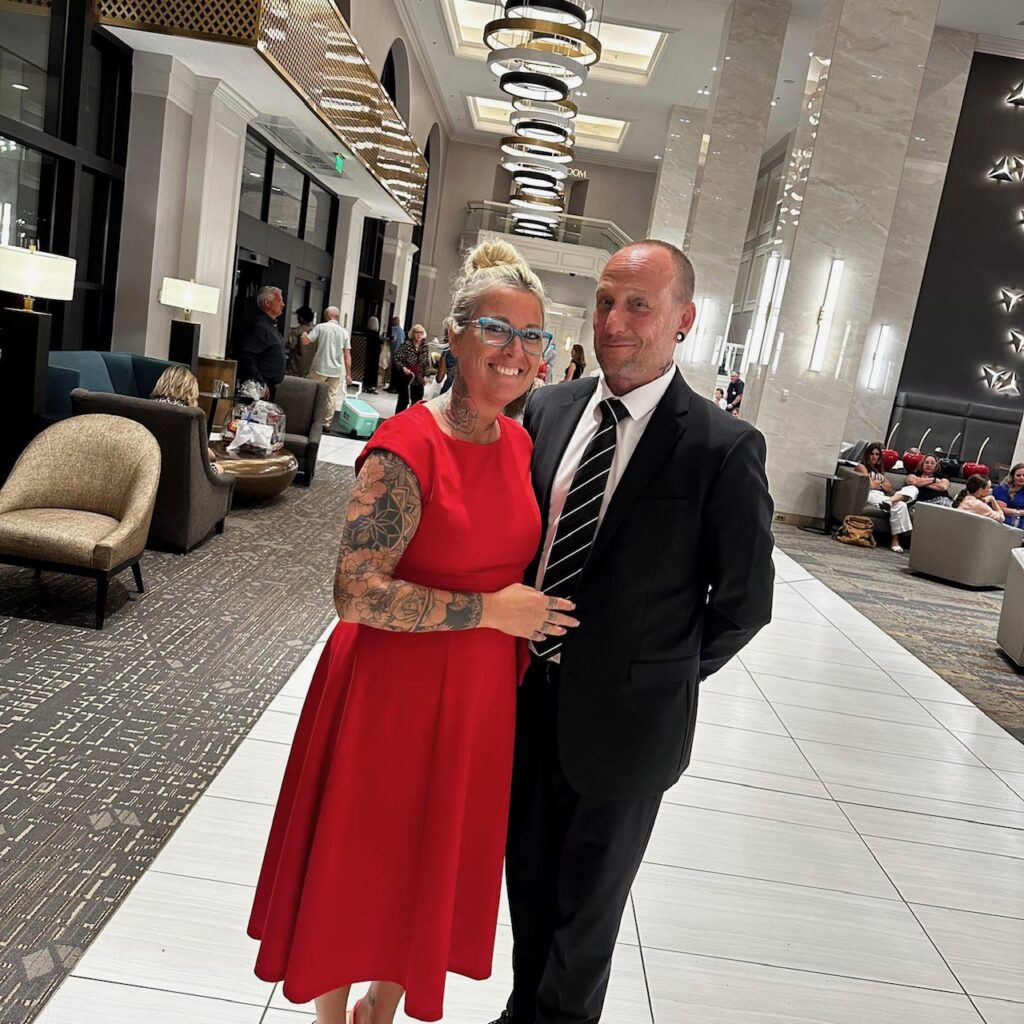
Carlson was arrested in 2009 for a nonviolent drug offense, convicted of misprision of a felony and sentenced to probation. She has since turned her life around, however. Carlson has been sober since 2011, repaired her relationships with her family and children, and is working as a licensed addiction counselor at Minnesota Adult and Teen Challenge in Minneapolis.
Still, her conviction has followed her and created challenges to moving forward since a federal offense shows up on background checks, which are needed for basic things like housing, employment and education.
In 2019, Carlson was referred to the law school’s Federal Commutations Clinic, led by Professor Mark Osler. The clinic serves federal prisoners seeking guidance and assistance in evaluating and preparing clemency petitions. Certified law student practitioners, under the supervision of Osler, work with incarcerated individuals, helping them to prepare commutation and pardon applications, specifically the addendum portion, or a narrative, which tells the story of the petitioner and makes the case for an early release.
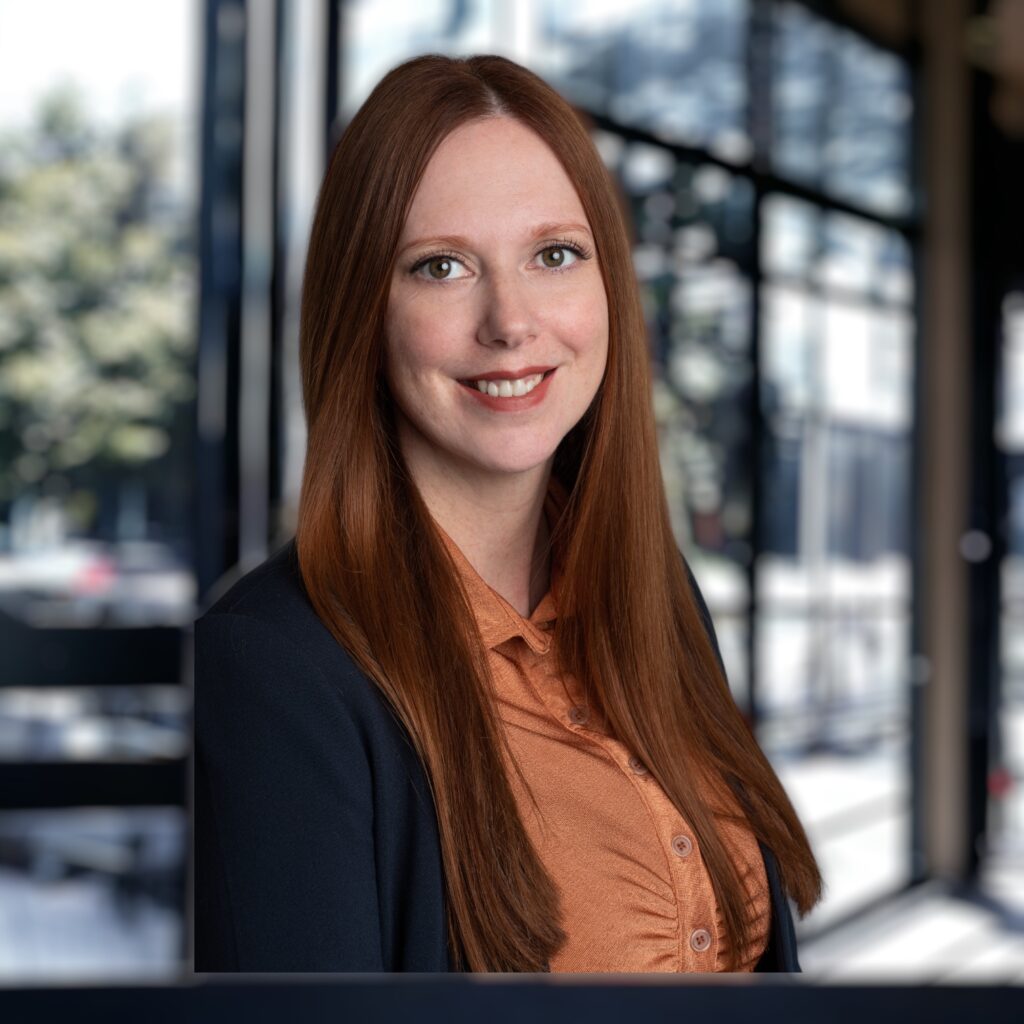
Working with then law student Jessica Ally ’21 J.D., Carlson submitted her petition for pardon in 2020. She had been waiting ever since for a response among a backlog of thousands of applications that had been submitted to the Office of the Pardon Attorney within the U.S. Department of Justice.
“I knew Sarah’s story was special from the start and appreciated the opportunity to work with her,” Ally said. “The last time I saw Sarah, she hugged me goodbye and said she knew the odds of receiving a pardon were not good, but she was grateful I took the time to tell her story and give her a chance. In that moment I was sad knowing the many faults of the clemency system would mean her application may never make it into the right hands. I feel honored I was able to be a small part of her incredible story.”
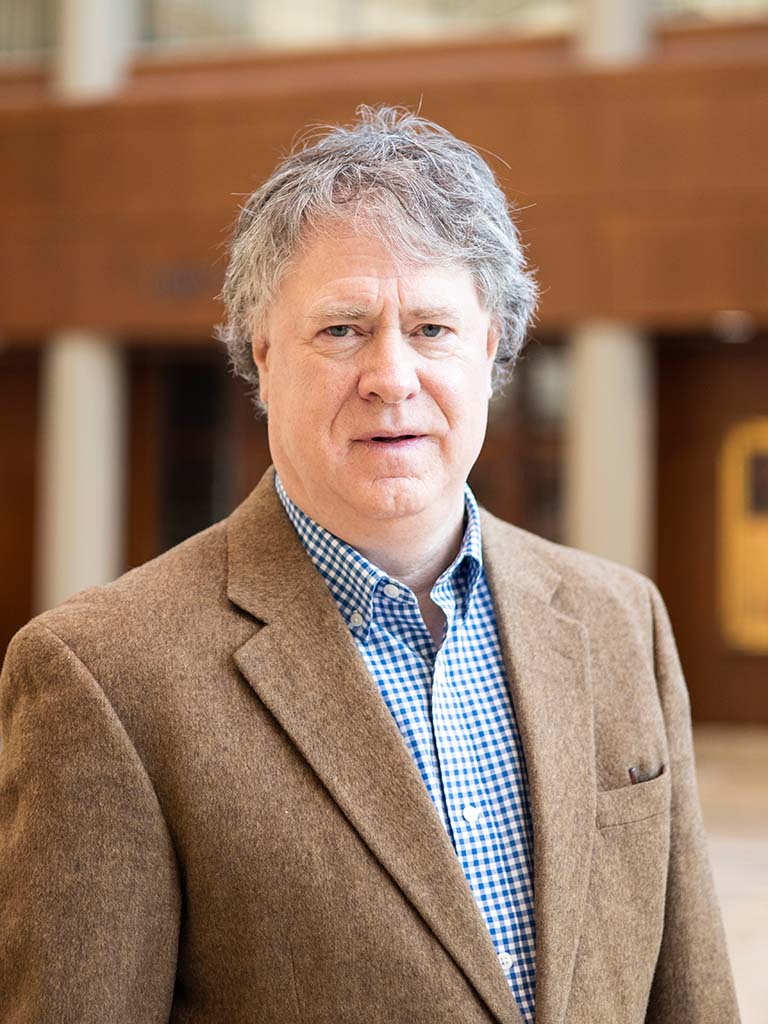
Carlson finally received the news she had been hoping for on Dec. 11, 2024, when Biden announced she had been pardoned, removing her conviction from her record and lifting all barriers for her future. Ally was even the one who called and told Carlson the good news the day before the public White House announcement.
“Sarah is typical of so many people who deserve clemency, and we hope there will be many more grants of clemency in the last weeks of the Biden presidency,” Osler said.
Osler is a longtime advocate and national voice for sentencing and clemency policies rooted in principles of human dignity. He has spoken throughout the country and written extensively on the topic in books, academic articles and in the media, most recently in opinion pieces in the New York Times and The Nation, urging President Biden to use his constitutional power to pardon and commute the sentences of those with pending petitions and beyond.
